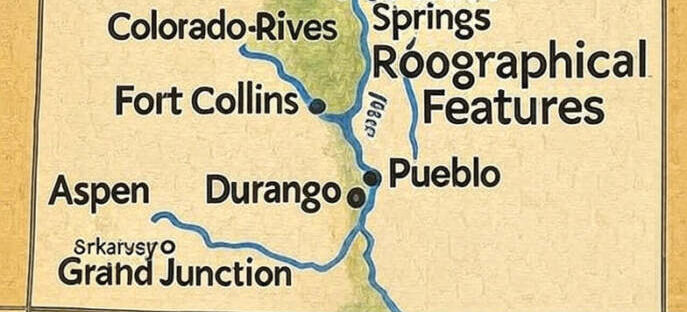Pay Stub Rules in Connecticut — Statewide Guide 2025
Introduction — Connecticut Pay Stub Rules Overview
Connecticut Pay Stub laws in 2025 define how employers must present employee payment information clearly and transparently. These regulations are essential for every employer and employee in the state. Understanding how pay stubs must be structured ensures compliance, accuracy, and transparency in payroll processing. As of 2025, all Connecticut businesses must issue detailed pay statements that show gross pay, deductions, hours worked, and net earnings clearly for every pay period.
This guide explains all the important Connecticut pay stub rules — including legal requirements, electronic delivery options, and how to generate compliant stubs using tools like the regular pay stub creator or the pay stub generator for accurate results. For a deeper understanding of multi-state payroll differences, see our State Payroll Guides resource. You can also refer to the official Connecticut Department of Labor for state-specific updates.
Connecticut Pay Stub Laws — Employer Obligations
The Connecticut Department of Labor mandates that every employer provide written or electronic pay statements for each pay period. These statements must clearly outline gross wages, deductions, and the resulting net pay. Employers must also retain copies of pay stubs for at least three years for compliance and recordkeeping.
By understanding and following Connecticut pay stub laws, employers can maintain accurate payroll systems, avoid penalties, and build trust with their workforce. You can learn more about overall payroll setup in our Payroll Management Basics article, or consult the U.S. Department of Labor for federal payroll requirements.
Required Details on Every Connecticut Pay Stub
To stay compliant, every pay stub in Connecticut must include the following key information:
- Employee’s full name and identifying details
- Employer’s business name and address
- Pay period start and end dates
- Total hours worked during the pay period
- Gross wages before deductions
- Itemized deductions such as taxes, insurance, and retirement contributions
- Net pay or take-home earnings
- Pay rate and any overtime or bonuses
Using a modern pay stub generator can help ensure every required detail appears automatically, saving time and reducing manual errors. For detailed deduction rules, visit our Deduction Compliance Tips page.
Electronic vs. Printed Pay Stubs
Connecticut allows both electronic and printed pay stubs, but employees must be able to easily view and print their statements. If a worker requests a paper copy, the employer must provide it. Electronic pay stub systems are becoming increasingly popular due to convenience and cost efficiency.
Many businesses now choose to use an online regular pay stub template to issue compliant, professional pay statements. You can explore best practices for online payroll in our Digital Payroll Solutions guide.
Employer Responsibilities for Payroll Accuracy
Connecticut employers are responsible for ensuring that all payroll data is accurate and up to date. This includes calculating gross wages, applying correct tax withholdings, and itemizing deductions. Employers must also verify that each pay stub aligns with the state’s labor regulations.
Implementing automated tools like a pay stub generator makes it easier to maintain accuracy, especially for businesses handling multiple employees. For additional recordkeeping help, check our Payroll Recordkeeping Tips page.
Employee Rights Under Connecticut Law
Employees have the right to receive a clear, complete pay statement each pay period. They can also request copies of past pay stubs within the three-year record retention period. If a business fails to provide accurate or timely statements, employees can report violations to the Connecticut Department of Labor.
To understand employee wage protections beyond pay stubs, visit our Employee Rights Guide.
Common Mistakes in Payroll Compliance
Even with good intentions, employers sometimes make errors that result in noncompliance. Common mistakes include:
- Omitting required pay stub details
- Incorrectly calculating taxes or deductions
- Failing to issue stubs on time
- Not keeping payroll records for the required three years
Avoid these problems by generating your stubs through a reliable regular pay stub creator that automatically follows Connecticut’s rules. You can also read our Payroll Error Prevention resource to minimize mistakes.
How to Create a Compliant Connecticut Pay Stub
1. Gather Employee Information
Collect employee names, pay rates, hours worked, and tax details. Accuracy at this stage ensures compliance with Connecticut pay stub laws.
2. Use a Professional Generator
Use an online pay stub generator to automate calculations for gross pay, deductions, and net pay. For templates and formats, visit Online Pay Stub Templates.
3. Review Before Distribution
Double-check all figures to avoid rounding errors or incorrect tax rates before issuing pay stubs to employees.
4. Maintain Records
Retain all payroll documents for at least three years as required by state law.
Why Use an Online Pay Stub Generator
Automating payroll creation is the easiest way to stay compliant with Connecticut laws. A digital pay stub generator offers:
- Automatic tax and deduction calculations
- State-compliant formatting
- Printable and digital outputs
- Faster payroll processing for small and large businesses
For businesses seeking convenience and accuracy, using a regular pay stub template provides a reliable foundation for payroll documentation. You can learn more about automation tools in our Payroll Software Benefits article.
Conclusion — Mastering Connecticut Pay Stub Compliance
Following the latest Connecticut pay stub rules helps employers maintain transparency, avoid penalties, and ensure employees understand their earnings clearly. Whether you manage payroll weekly or monthly, accuracy and consistency are key to compliance.
Streamline your payroll process today with the professional regular pay stub builder or use the advanced pay stub generator to create accurate, compliant pay stubs that meet all 2025 Connecticut standards. For more state-specific guidance, see our U.S. Pay Stub Laws Directory.

